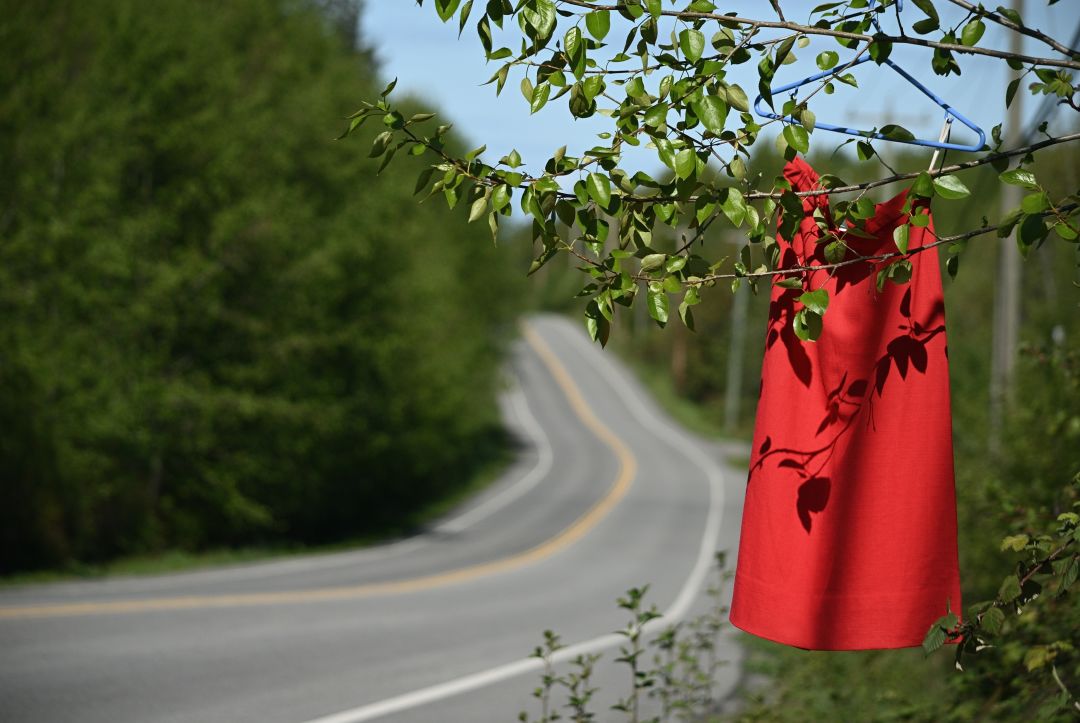A Missing Indigenous People Alert Is Coming to a Highway, or Phone, Near You

British Columbia has taken a different roadside approach to raising awareness for the crisis.
Image: Jack1859 / shutterstock.com
Highway messages are legendary in Washington, where everything from an Uncle Sam sign to a Seattle Is Dying joke gone awry to the “Science is God” house have become part of I-5 lore. But last week guaranteed our roadside canon will be historic for much more serious reasons.
At Tulalip Resort Casino on Thursday, governor Jay Inslee signed into law the nation’s first statewide missing Indigenous people alert system. That’s right. Somehow—like that new federal anti-lynching act—this is not a thing that already existed.
House Bill 1725 requires the Washington State Patrol to set up a hotline for reporting cases of endangered Native Americans, with pictures and information distributed, a la an Amber Alert, to highway reader boards and local media and, maybe most importantly, social media feeds. “Those are our smoke signals today,” Lhaq'temish Foundation executive director Candice Wilson Quatz'tenaut said at the ceremony.
As Hayat Norimine chronicled for this magazine back in 2018, the erasure of missing and murdered Indigenous women is a national problem that’s been disturbingly common locally. The Urban Indian Health Institute found that Seattle reported the most cases of any metro. Washington tallied the second-most of any state.
The reasons for these disappearances are likely manifold. News articles often cite sex work and domestic violence, but those claims are overstated, the UIHI study says. And that's when media outlets are actually paying attention to the crisis—more than 95 percent of cases in the report weren’t covered by national or international media. Call it the Petito Problem. “When we see in the public—when somebody is missing—how they put it out there, and then with our people, it didn’t happen, it was still another injury to the tribal people, still felt like our people didn’t matter,” said Teri Gobin, chair of the Tulalip Tribes.
Many in attendance at the event felt that pain acutely. Patricia “Patsy” Whitefoot of Yakama Nation detailed how her youngest sister went missing decades ago. Resolution eludes her family and others’. “For me personally, it came to the point that I had to accept that I may leave this world without ever knowing where my sister is.” She makes her grandchildren state their parents’ English names and phone numbers regularly in case something ever happens to them.
Representative Debra Lekanoff, the state legislature’s only current Native American lawmaker, was the bill’s chief sponsor. She sat on a missing and murdered Indigenous women task force set up by the office of state attorney general Bob Ferguson. Ferguson vowed that the bill won’t be the last of its kind they push through.
A separate piece of legislation Inslee signed on Thursday may be just as critical to that effort. It ensures county coroners or other medical examiners will attempt to contact family members and tribes upon receipt of an Indigenous person’s remains, as well as allow for spiritual ceremonies. In the past, agencies have struggled—or just neglected—to identify bodies of missing relatives.
Abigail Echo-Hawk calls this undercount “data genocide.” As the director of Urban Indian Health Institute, Echo-Hawk spearheaded that seminal report years ago, self-funding some of the early research. She spoke at a University of Washington public lecture a day before the bill signing. Rosalie Fish, the UW cross country star who runs with a red hand painted over her mouth to raise awareness for the cause, invited her. Echo-Hawk supported the new alert system but also warned that legislation doesn’t always precipitate action. Neither does awareness born from cruising past a sign on I-5. “Now,” she said, “you have accountability.”




